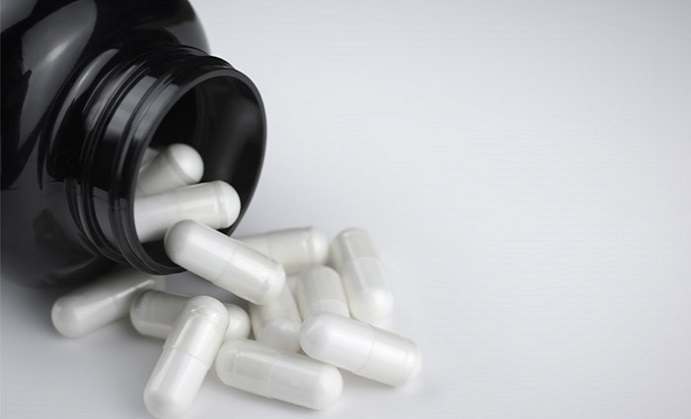A natural supplement called Forskolin has been attracting attention and stimulating debates recently. Some claim that Forskolin effectively treats allergies, heart problems, hypertension, glaucoma, and asthma, while also enhancing weight loss and decreasing the risk of cancer. Others affirm that Forskolin is simply a scam.
Like many other natural supplements, Forskolin has little concrete scientific evidence to back it up. My goal in this article is to look at what evidence is available.
 Before we begin, it is interesting to note that Forskolin is labdane diterpene extracted from Plectranthus barbatus plants. These tall woody plants abound in humid climates, such as Peru, Argentina and other South American countries, as well as certain parts of Africa and India. Certain varieties of Plectranthus plants are called Coleus forskohlii or Indian Coleus. The labdane diterpene taken from these plants stimulates adenylate cyclase, an enzyme in the plasma membrane of our cells. This enzyme plays a vital role in the production of cAMP, which enable cells to communicate with each other and respond properly to hormones.
Before we begin, it is interesting to note that Forskolin is labdane diterpene extracted from Plectranthus barbatus plants. These tall woody plants abound in humid climates, such as Peru, Argentina and other South American countries, as well as certain parts of Africa and India. Certain varieties of Plectranthus plants are called Coleus forskohlii or Indian Coleus. The labdane diterpene taken from these plants stimulates adenylate cyclase, an enzyme in the plasma membrane of our cells. This enzyme plays a vital role in the production of cAMP, which enable cells to communicate with each other and respond properly to hormones.
Now let’s examine supporting evidence for each of Forskolin’s claims to fame:
Claim #1: Forskolin can be used to treat primary open angle glaucoma.
Only a limited number of clinical studies have been conducted to prove the efficiency of Forskolin eye drops in cases of glaucoma. The first of these studies involved rabbits and the results were positive. Forskolin eye drops applied twice a day consistently produced a decrease in intraocular pressure. A later study involved a small group of both men and women who had primary open angle glaucoma, and the results were consistent with the first.
Claim #2: Forskolin is effective in cases of asthma.
 In some cases, Forskolin functions as a vasodilator and also anti-inflammatory agent. These two properties may be what enable Forskolin to prevent or at least mitigate asthma flare-ups. One clinical study comparing asthmatics found that those who took Forskolin had fewer attacks and milder symptoms than those who only used conventional inhalers.
In some cases, Forskolin functions as a vasodilator and also anti-inflammatory agent. These two properties may be what enable Forskolin to prevent or at least mitigate asthma flare-ups. One clinical study comparing asthmatics found that those who took Forskolin had fewer attacks and milder symptoms than those who only used conventional inhalers.
Claim #3: Forskolin enhances weight loss.
As Forskolin increases intercellular cAMP, various processes within our bodies our optimized including lypolisis by which fat cells are burned. This may explain why recent data consistently indicates that taking Forskolin supplements enhances weight loss and encourages the formation of lean muscles. A three month study involving overweight subjects confirmed these findings. The subjects taking Forskolin and following a low calorie diet in this study enjoyed greater weight loss, increased bone density and the growth of more lean muscles, compared to the control group who followed the same low calorie diet.
Claim #4: Forskolin cream can cause artificial tanning.
 Cases involving malignant melanoma, a form of skin cancer, increase every year. It is caused when the DNA of pigment cells become damaged and begin dividing without control. People who tan when exposed to ultraviolet light are less likely to develop melanoma than those who are fair skinned and burn easily. Experiments using laboratory mice show that applying Forskolin cream topically causes artificial tanning. Although it has not been proven in humans yet, this technique of tanning may be a way to protect fair skinned people from sunburns and melanoma.
Cases involving malignant melanoma, a form of skin cancer, increase every year. It is caused when the DNA of pigment cells become damaged and begin dividing without control. People who tan when exposed to ultraviolet light are less likely to develop melanoma than those who are fair skinned and burn easily. Experiments using laboratory mice show that applying Forskolin cream topically causes artificial tanning. Although it has not been proven in humans yet, this technique of tanning may be a way to protect fair skinned people from sunburns and melanoma.
A Final Word on Forskolin
Although Forskolin is a natural compound, it has been linked to a few side effects, specifically headaches, abnormally low blood pressure, and in rare cases gastric distress. If you are undergoing treatment for kidney disease, hypertension, blood clots or any other chronic condition, it is imperative that you speak with your healthcare provider before taking a Forskolin supplement. Forskolin has its benefits, but if it enters into conflict with commercial drugs or delays conventional treatment, it can have deadly results.
Do you want to find an effective Forskolin supplement? Check out our top rated Forskolin products











